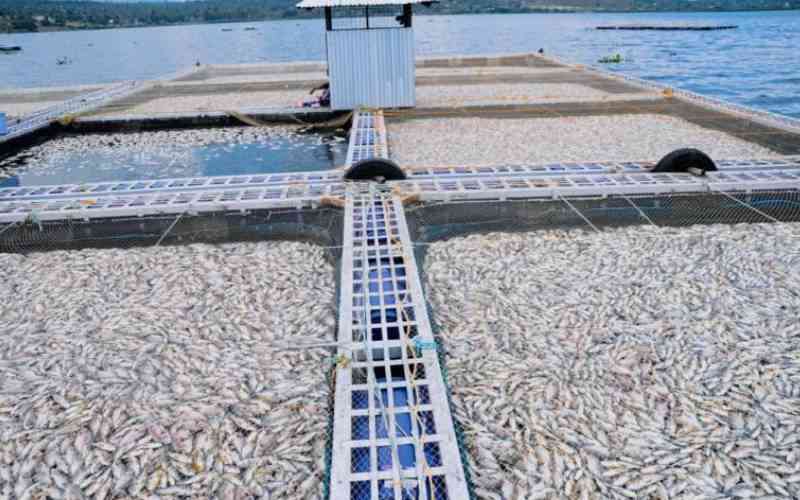×
The Standard e-Paper
Smart Minds Choose Us

Extreme temperatures coupled with low oxygen levels attributed to pollution are to blame for mass fish deaths recently experienced in Lake Victoria.
The report by the Ministry of Mining, Blue Economy and Maritime Affairs last month estimated losses by Kisumu and Homa Bay fish farmers at Sh927,969,000.